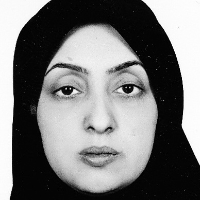Designing a Model for Promoting Cultural Literacy in the Education of Iran
Cultural literacy is one of the important topics to consider today. Therefore, the current research is designed with the aim of providing a model for promoting cultural literacy in the education of Iran.
This research is practical, and exploratory mixed in terms of purpose and data; it is also cross-sectional and foundational data in terms of implementation. The statistical population consisted of experts and key informants in the field of the research in the qualitative phase, which was sampled based on a conscious approach and with a purposeful and snowball method. The population in the quantitative phase consisted of all education managers and experts. Based on Krejcie and Morgan's table, 384 people were determined by the stratified random method as the research sample. Then a questionnaire was distributed among them. In order to collect data in the qualitative stage, the library method (documentation) and the field method (Delphi interview) were used, and in the quantitative stage, the field method (questionnaire) was used. In the qualitative phase, the techniques of theoretical saturation, coding procedures and the analysis of symbols and signs were used to determine the validity of the tool. In the quantitative stage, content validity and Cronbach's alpha were used to measure validity and reliability. The theoretical coding method (taken from the Grounded Theory) and exploratory and confirmatory factor analysis were used for analysis in the qualitative and quantitative parts.
The qualitative results led to a model of promoting cultural literacy in education with 6 dimensions, 29 components, and 134 indicators, which were confirmed in the quantitative stage of 6 dimensions, 29 components, and 131 indicators; including contextual factors (fundamental and transformative documents and programs, family, macro-cultural policies, approved curricula, and macro-education management); Causal factors (technology, laws and regulations, media and educational facilities and equipment); Intervening factors (economic factors, individual and interpersonal skills, social factors and cultural invasion); Strategies (celebrities, national literature, national and world history, architecture, music, religion, ethnic groups and customs, world literature, sports-games-entertainment, arts and crafts, kings and dynasties, drama) and consequences (increasing efficiency and effectiveness of education, increasing national pride and increasing cultural awareness) and 131 indicators.Based on the results obtained, the five categories of "Macro-cultural policies", "Transformation and fundamental documents and programs", "Approved curriculums", "Macro-education management" and "Family" were obtained as the contextual conditions for the realization of cultural literacy.
Based on the results, the five categories of "macro-cultural policies", "documents and programs of transformation and fundamental", "approved curricula", "macro-management of education" and "family" to The title of the preconditions for the realization of cultural literacy has been obtained
- حق عضویت دریافتی صرف حمایت از نشریات عضو و نگهداری، تکمیل و توسعه مگیران میشود.
- پرداخت حق اشتراک و دانلود مقالات اجازه بازنشر آن در سایر رسانههای چاپی و دیجیتال را به کاربر نمیدهد.



